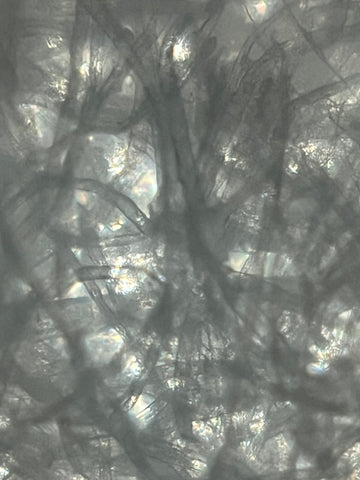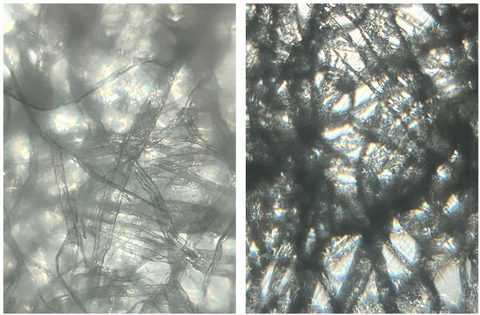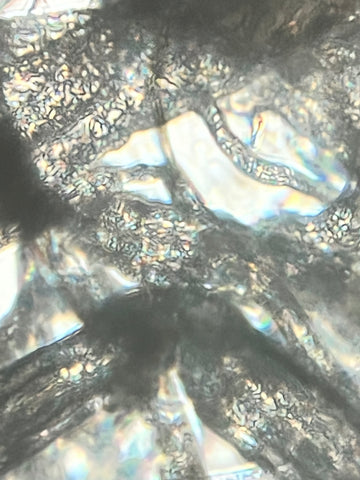As spring gets closer and closer, people with seasonal allergies begin reaching for tissues for their runny noses. I decided to do some microscopic explorations of tissues with my Foldscope 2.0. Read on to find out what I saw!

What Are Tissues Made Of?
The tissues I put under my Foldscope were soft to the touch and felt gentle on my nose. Which is why it can be hard to believe they are made from wood! The transformation from tree to tissue is a complicated process that leaves the tissue’s wood fibers hidden on the macroscopic scale. But with a Foldscope, you can see evidence of the tissue’s forest origins.

Double Ply Versus Single Ply Tissues
When I put a double ply tissue sample on a slide, the wood fibers from the top ply appeared to be floating on top of the second ply. I then separated the two layers and put a single ply of tissue on a slide. My Foldscope showed why double ply tissues are much better at catching all of the drips from allergy prone noses. In the picture below on the right, the white color is actually open space in the single ply of tissue. Sneezing into a single ply tissue is like trying to catch water with a sieve!

I also noticed that the refraction of light with the single ply wood fibers produced colorful sparkles in the picture. I am glad I took a moment to put something ordinary under my Foldscope. It allowed me to discover rainbows hiding in an unexpected place.

Have you looked at tissues under a Foldscope 2.0? Use your Foldscope to dive into the microscopic world and find the beauty that is there waiting for you. Share your microscopic images and thoughts on the Microcosmos. Be sure to tag us on social media when you post the results of your explorations, creations, and discoveries! We love to see how Foldscopers around the world are using their Foldscopes in new and innovative ways!
Facebook: @Foldscope
Twitter: @TeamFoldscope
Instagram: @teamfoldscope
Threads: @teamfoldscope



